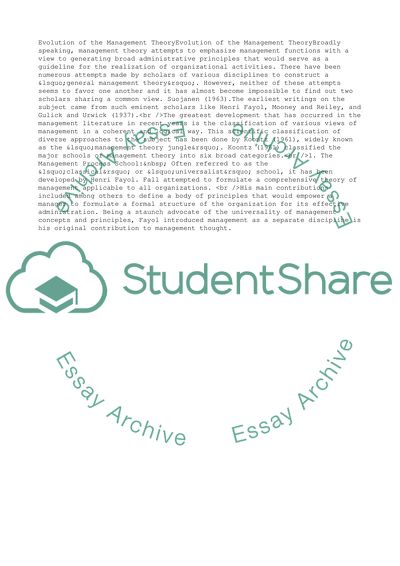Cite this document
(Evolution of the Management Article Example | Topics and Well Written Essays - 2189 words, n.d.)
Evolution of the Management Article Example | Topics and Well Written Essays - 2189 words. Retrieved from https://studentshare.org/management/1507991-most-ideas-representative-of-general-administrative-theories-are-relevant-to-modern-global-organizations
Evolution of the Management Article Example | Topics and Well Written Essays - 2189 words. Retrieved from https://studentshare.org/management/1507991-most-ideas-representative-of-general-administrative-theories-are-relevant-to-modern-global-organizations
(Evolution of the Management Article Example | Topics and Well Written Essays - 2189 Words)
Evolution of the Management Article Example | Topics and Well Written Essays - 2189 Words. https://studentshare.org/management/1507991-most-ideas-representative-of-general-administrative-theories-are-relevant-to-modern-global-organizations.
Evolution of the Management Article Example | Topics and Well Written Essays - 2189 Words. https://studentshare.org/management/1507991-most-ideas-representative-of-general-administrative-theories-are-relevant-to-modern-global-organizations.
“Evolution of the Management Article Example | Topics and Well Written Essays - 2189 Words”, n.d. https://studentshare.org/management/1507991-most-ideas-representative-of-general-administrative-theories-are-relevant-to-modern-global-organizations.


